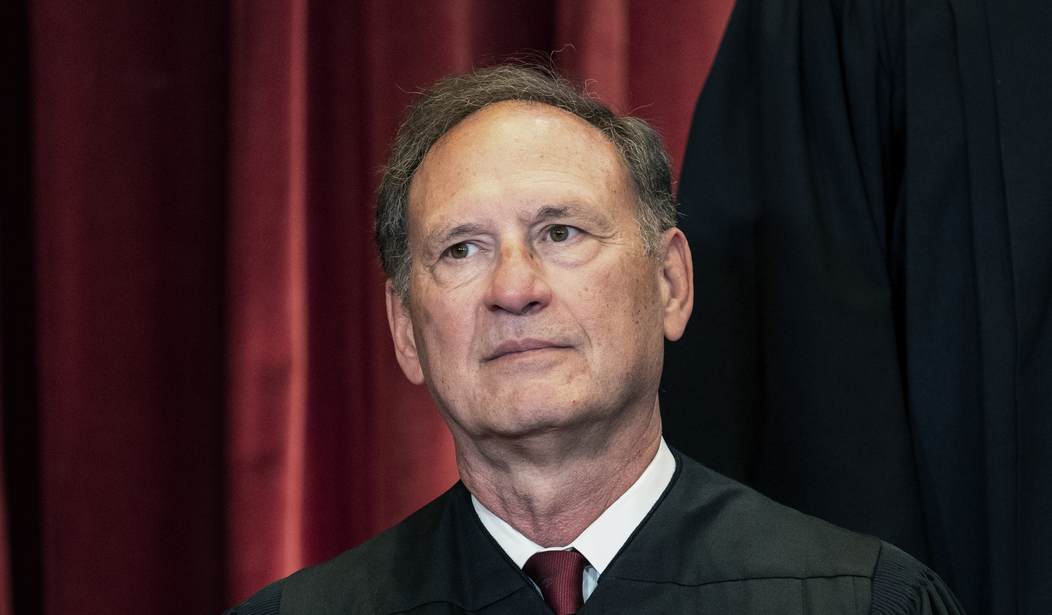Hmmmm. Justice Samuel Alito doesn’t provide the identity of the central figure in the biggest whodunit in Supreme Court history, but he does supply the motive. Alito tells Wall Street Journal reporter/columnist James Taranto about the immediate impact of the leak of the Dobbs opinion on the conservative justices, revealing that Brett Kavanaugh was not alone in facing threats on his life. The leak of the opinion put all six of that wing of the court at risk, Alito claims, and still does to this day.
Given all that, Alito says, you have to be out of your mind to think that the leak came from their offices. He tells Taranto that he has a good idea of the leaker’s real identity, and it’s not someone who wanted Dobbs decided as it was:
Justice Alito says the marshal “did a good job with the resources that were available to her” and agrees that the evidence was insufficient for a public accusation. “I personally have a pretty good idea who is responsible, but that’s different from the level of proof that is needed to name somebody,” he says. He’s certain about the motive: “It was a part of an effort to prevent the Dobbs draft . . . from becoming the decision of the court. And that’s how it was used for those six weeks by people on the outside—as part of the campaign to try to intimidate the court.” …
A few pundits on the left speculated that the leaker might have been a conservative attempting to lock in the five-justice majority and overturn the constitutional right to abortion. “That’s infuriating to me,” Justice Alito says of the theory. “Look, this made us targets of assassination. Would I do that to myself? Would the five of us have done that to ourselves? It’s quite implausible.”
The leak, Alito argues, came from an escalating campaign of political intimidation targeting the judiciary and the Supreme Court in particular. That has left the court with a conundrum in which it can only defend itself at the risk of being castigating as acting “politically.” It’s a catch-22: activists use intimidation tactics to argue that only certain outcomes of cases confer “legitimacy,” and any disagreement and response also adds to evidence of illegitimacy.
Alito specifically points to the criticism Kavanaugh took for defending himself publicly in his confirmation hearing from accusations of being a rapist:
“After Justice Kavanaugh was accused of being a rapist during his Senate confirmation hearings, he made an impassioned speech, made an impassioned scene, and he was criticized because it was supposedly not judicious, not the proper behavior for a judge to speak in those terms. I don’t know—if somebody calls you a rapist?”
The escalations have only continued, and now are being tacitly supported by the Biden administration. Alito and his fellow justices now have to travel in public with heavy security, in part because the Department of Justice under Merrick Garland refuse to enforce 18 USC 1507, which prohibits any sort of demonstration “in or near” the residence or office of a federal judge with the intent of influencing decisions, and — one would presume — especially with the intent to intimidate. That law has been upheld as constitutional by the courts, and yet Garland has refused to enforce it, even after the assassination attempt on Kavanaugh.
In this environment, Alito wonders, how can anyone think that a conservative would have gone out of their way to provoke even more opportunities for intimidation?
It’s a good question. And even while Alito feels honor-bound to refrain from giving a final answer to the Great SCOTUS Whodunit, he’s given us enough of an answer to grasp what leaker intended.








Join the conversation as a VIP Member